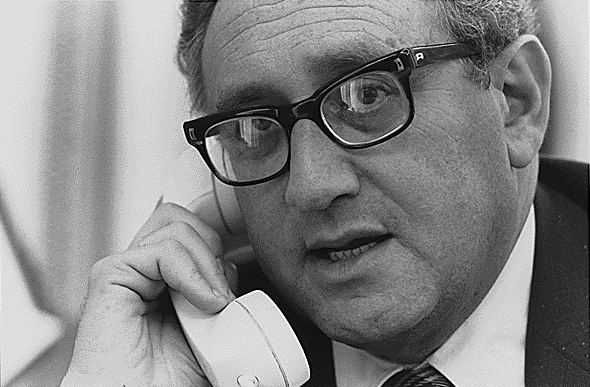Many people believe that Henry Kissinger supported the war in Vietnam throughout the 1960’s, and that was the reason Richard Nixon made him National Security Adviser. That isn’t the case. Kissinger’s private papers make it clear that by 1966 he realized the U.S. strategy would fail, and that diplomacy was the answer. Kissinger understood the nature of the problem facing US forces. History told him that guerrillas were not easily beaten, and that South Vietnam had suffered many Viet Cong attacks. He said that the South Vietnam people need to have confidence in their government if stability was to be achieved, and that would not happen unless America shared the same confidence.
When in 1963 the Kennedy administration approved the coup against the Ngo Dinh Diem government, Kissinger voiced his criticism saying it was “shameful” and that it would result in worsening conditions in Vietnam.
In October 1965 Kissinger flew to Saigon for the first time. He knew virtually nothing of Vietnam’s past, but he was sure that the war would not be won by purely military means. He believed that a compromise involving the Viet Cong was necessary.
Briefed by US military experts, Kissinger realized that nobody knew how the war would end. He believed that US planning centred around an assumption that the Viet Cong would fight conventionally. He knew this was false thinking – the essence of guerrilla warfare is never to do what your enemy expects.
In Saigon he was warned that he should stay close to the US embassy for safety, because losses to terrorists in the city were far greater than stated in official reports. Visiting a swimming club, he was told that the magnificent beaches to the north of Saigon were no longer safe because they were being used as a rest and recuperation area for the Vietcong.
Saigon appeared to Kissinger to be normal. On his first day in the city the only sign of tension he noticed was that drivers looked nervous at traffic intersections, or if someone approached the car, Politico Magazine reports.
On October 26 Kissinger travelled to the old Vietnamese capital of Hue. The dean of Hue University wanted him to visit an imperial tomb a short distance from the city. He decided against the trip when he was advised that the Viet Cong were so active in the area that it would take two platoons to get him there and back safely. He wanted to talk to one of the Buddhist leaders however, who insisted on meeting at a pagoda away from the centre of town. Kissinger thought that if the Viet Cong were as active as he had been told it would be easy for them to kill him and his party on the way. His escort from the embassy told him that the Viet Cong never engaged in indiscriminate assassination and that “if they shot at us we would have the consolation of knowing that we had been singled out for specified targets.”
